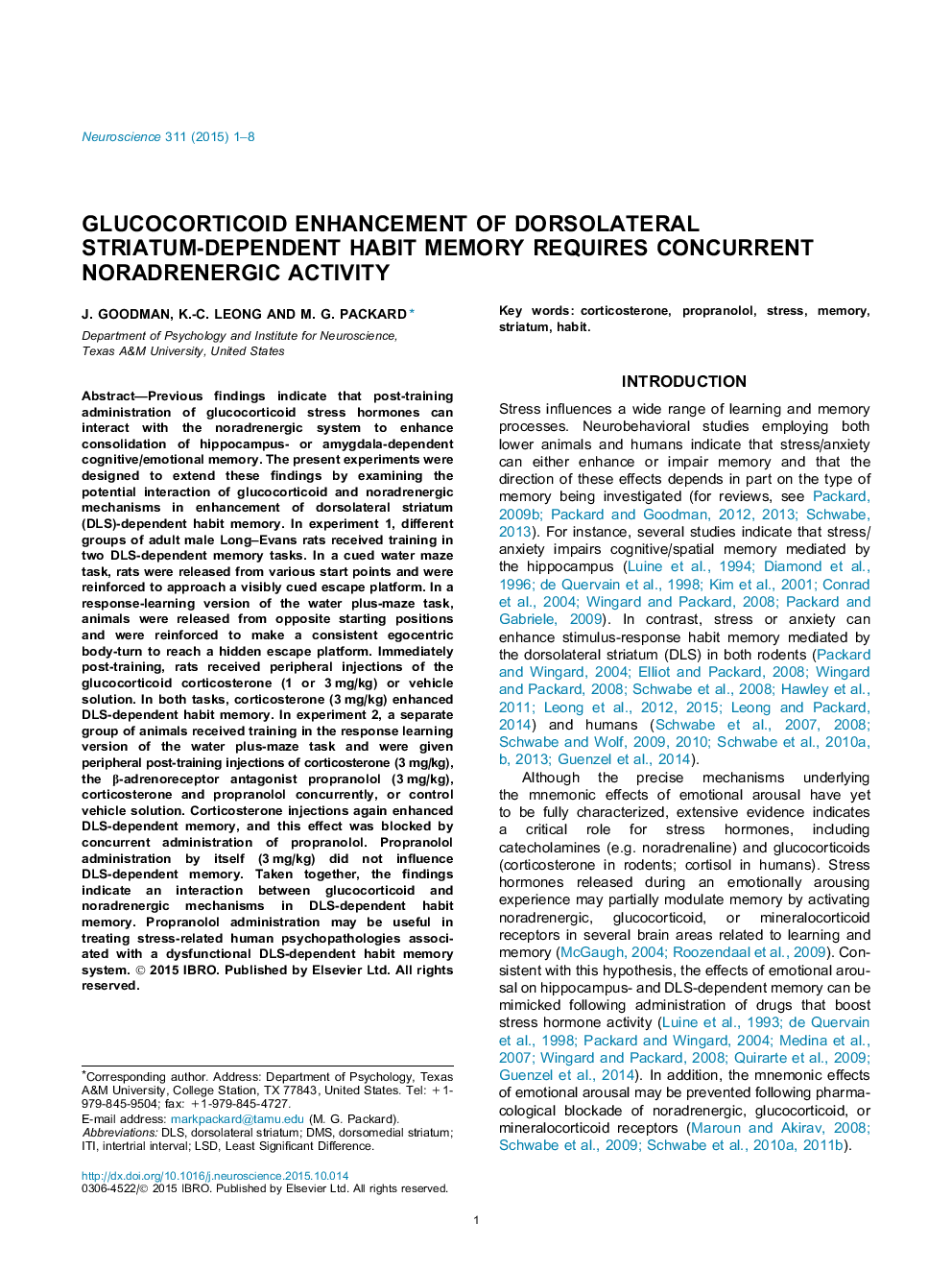| Article ID | Journal | Published Year | Pages | File Type |
|---|---|---|---|---|
| 6271640 | Neuroscience | 2015 | 8 Pages |
â¢The modulatory effect of glucocorticoids on hippocampus/amygdala-dependent memories requires noradrenergic activity.â¢We examined whether glucocorticoid-noradrenergic mechanisms also interact to influence striatum-dependent habit memory.â¢In experiment 1, post-training corticosterone enhanced habit memory in the cued water maze and water plus-maze tasks.â¢In experiment 2, post-training β-adrenoreceptor antagonist propranolol blocked glucocorticoid enhancement of habit memory.â¢Propranolol may block the stress-induced facilitation of striatum-dependent habit memory in human psychopathology.
Previous findings indicate that post-training administration of glucocorticoid stress hormones can interact with the noradrenergic system to enhance consolidation of hippocampus- or amygdala-dependent cognitive/emotional memory. The present experiments were designed to extend these findings by examining the potential interaction of glucocorticoid and noradrenergic mechanisms in enhancement of dorsolateral striatum (DLS)-dependent habit memory. In experiment 1, different groups of adult male Long-Evans rats received training in two DLS-dependent memory tasks. In a cued water maze task, rats were released from various start points and were reinforced to approach a visibly cued escape platform. In a response-learning version of the water plus-maze task, animals were released from opposite starting positions and were reinforced to make a consistent egocentric body-turn to reach a hidden escape platform. Immediately post-training, rats received peripheral injections of the glucocorticoid corticosterone (1 or 3 mg/kg) or vehicle solution. In both tasks, corticosterone (3 mg/kg) enhanced DLS-dependent habit memory. In experiment 2, a separate group of animals received training in the response learning version of the water plus-maze task and were given peripheral post-training injections of corticosterone (3 mg/kg), the β-adrenoreceptor antagonist propranolol (3 mg/kg), corticosterone and propranolol concurrently, or control vehicle solution. Corticosterone injections again enhanced DLS-dependent memory, and this effect was blocked by concurrent administration of propranolol. Propranolol administration by itself (3 mg/kg) did not influence DLS-dependent memory. Taken together, the findings indicate an interaction between glucocorticoid and noradrenergic mechanisms in DLS-dependent habit memory. Propranolol administration may be useful in treating stress-related human psychopathologies associated with a dysfunctional DLS-dependent habit memory system.
